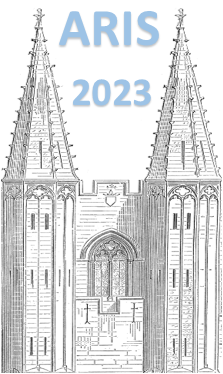Présidents de session
plenary 03
- Byungsik Hong (Korea University)
The DEcay SPECtroscopy (DESPEC) setup assembled for the future GSI-FAIR fascility in Darmstadt, Germany, aims to study the nuclear footprint mainly through gamma ray spectroscopic measurements.
As a part of the NUSTAR project, the DESPEC collaboration aims to search for the exotic nuclear structure phenomena such as shell evolution in nuclei which take part in the astrophysical r-processes....
The ISOLDE Solenoidal Spectrometer (ISS) has been built for measuring direct reactions in inverse kinematics with radioactive beams (RIBs) from HIE-ISOLDE, with a focus on obtaining excellent charged particle resolution. ISS was fully commissioned in 2021 with a new silicon array developed by the University of Liverpool. This array makes use of double-sided silicon strip detectors, with ASIC...
(for the E690 and E791 collaborations)
For nuclear systems that are slightly unbound with respect to the nuclear strong interaction, the 1- and 2-proton radioactivity decay channel opens [1,2]. The experimental study of these radioactivities offers a unique access to the structure properties of the emitting states. Such data can represent real challenges in terms of theoretical...
Half of the heavy elements are produced in r-process nucleosynthesis, which is exclusively responsible for actinide production, such as Pu-244 (t$_{1/2}$=81 Myr). The r-process requires an explosive scenario but is far from being fully understood; in particular, its sites and history.
The solar system moves through the interstellar medium (ISM) and collects interstellar dust particles that...

